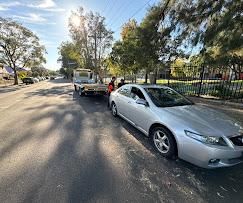The Philosophy of Scrap: What Discarded Cars Can Teach Us About Value

Most people do not think much about their cars once they stop working. An old vehicle, once full of life, often ends up sitting unused. It might gather dust in a backyard, rust away in a driveway, or be forgotten in a shed. But these machines still hold meaning, even when they no longer move. Discarded cars can teach people about how value is seen, created, and lost.
This idea goes beyond machines. It invites people to rethink how they view objects, choices, and even time.
When the Engine Stops, the Story Does Not
Every car has a story. Some take children to their first day of school. Others carry goods across long roads. Some are bought after years of saving. Each one is part of daily life, until something changes. Maybe the engine fails. Maybe the cost of repair is too much. Maybe it is simply replaced by a newer model.
At that point, most people see the vehicle as useless. But just because something no longer serves its first role does not mean it holds no value. It only means people need to see it from another point of view.
More Than Just Scrap Metal
A car is not only its shape or speed. Inside, it holds steel, rubber, copper, and many other useful parts. Just because the whole vehicle no longer runs does not mean the materials are gone. They remain. And they can still serve other purposes.
Australia sees around 500,000 cars recycled each year. These materials are reused in other machines, tools, and buildings. This cuts down on waste and reduces the need for new raw resources. It also means that old cars keep giving, even after their wheels stop turning.
This shows that things do not have to be perfect to be useful. Even broken pieces can play a part.
Changing How Value is Defined
People often believe something is valuable only when it works. If it stops working, they throw it away. But value is not fixed. It shifts. An old tyre may seem useless, but it can become part of a playground or garden. A worn seat might be reused in a workshop. A rusty door might become a part of recycled artwork.
In fact, many scrap yards do more than just crush old vehicles. They take them apart. They check what still works. They sort through what can be sold or reused. This turns scrap into supply.
Value, then, is not just about function. It is about potential. The way people look at objects can change what they become.
Emotional Worth Cannot Be Measured
Some people hold onto old cars for years, not because of money, but because of memories. Maybe it was their first car. Maybe it belonged to a loved one. Maybe it reminds them of a road trip or an important time in their life.
Even if the vehicle no longer works, it still carries meaning. People sometimes keep a piece of it—like the steering wheel badge or number plate—as a way to hold onto those memories.
This shows that worth is not always about parts or price. It can be about emotion. And even that kind of value matters.
One Responsible Way to Let Go
There comes a time when keeping an old car becomes more of a burden than a memory. It might take up space. It might be unsafe. It might attract rust, pests, or even fines. When that time comes, choosing the right way to say goodbye is important.
In Sydney, there are services that handle this with care. For example, fast car removal sydney, offered by a local company, helps people clear unused vehicles from their property. This allows parts to be recovered, metal to be recycled, and the car’s final use to be respectful. It is a simple way to clear space while still making sure the vehicle’s materials are not wasted.
Letting go does not always mean throwing away. Sometimes, it is just the start of something new.
What Scrap Yards Really Do
Many people picture scrap yards as places where metal goes to die. But in truth, they are places of second chances. Trained workers take each car apart. They check for useful parts. They clean, sort, and pass materials onto other industries.
This system means fewer materials are taken from the earth. It also means less rubbish in landfills. Even more, it supports workers and industries that depend on second-hand parts.
Scrap yards show that things are not always what they seem. What looks like a pile of broken metal may be full of life, waiting to be used again.
Lessons from the Scrap Heap
So, what do discarded cars really teach? More than many people might think.
They show that value is not just found in how something looks or works. It can be found in what it becomes. They remind people to look beyond first thoughts and to see deeper meaning. They also encourage smarter choices—ones that help both people and the planet.
Old cars may never drive again. But they still have something left to offer.
Final Thoughts
In the end, the philosophy of scrap is not only about vehicles. It is about how people see worth in everyday life. Whether it is a car, a chair, or an idea—just because something has changed does not mean it is finished. With the right approach, it can become something new.
Discarded cars stand as proof that nothing truly goes to waste unless people choose not to see what remains.







